Thirty and Thriving: From Documentary Director to Delivery Guy to Govt Affairs
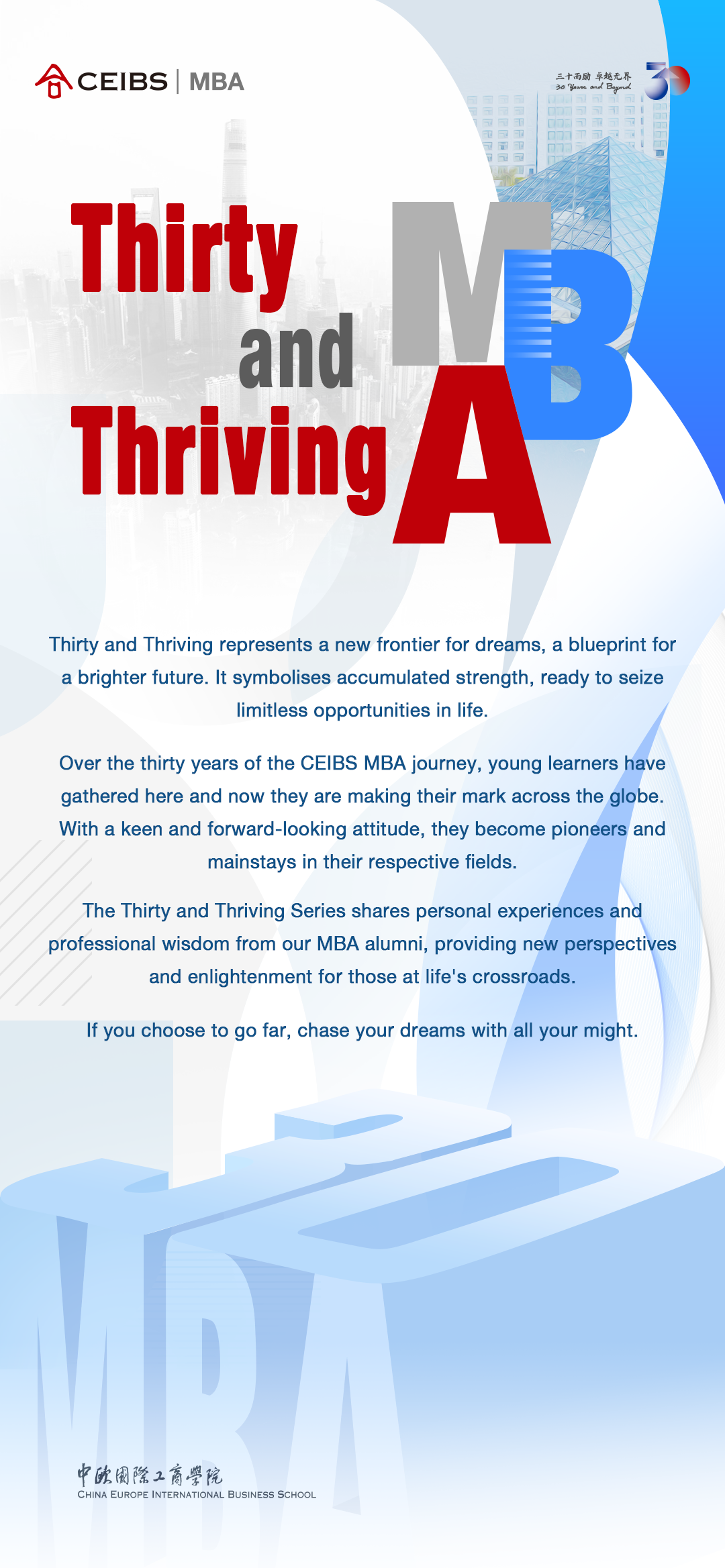

He once ran marathons and produced news documentaries. As a documentary director in the United States, he interviewed numerous political figures, capturing the zeitgeist. In pursuit of his dreams, he boldly returned to China, working as a food delivery rider and meticulously managing his own cozy, distinctive snack shop. Now, he has crossed professional boundaries multiple times, first venturing into the healthcare industry and later transitioning to government affairs for a multinational corporation, demonstrating his versatility and resolve in cross-disciplinary integration.
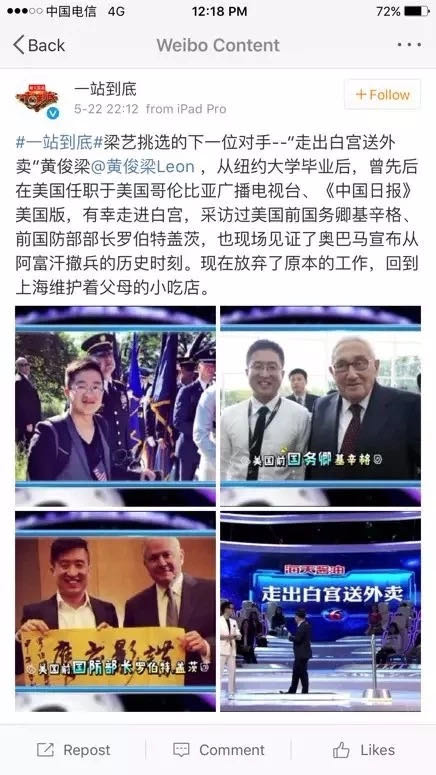
This year marks the 30th anniversary of China Europe International Business School (CEIBS). To commemorate this milestone, we have invited Leon Huang, Head of Government Affairs for Eastern China at Merck Investments (China) Co., Ltd. His extraordinary experiences and fearless pursuits are undoubtedly the epitome of a life lived without limits. Leon's journey inspires us to be bold in our respective fields, continuously push our boundaries, and explore broader horizons in life.
What do you think about "Thirty and Thriving"?
Pursuing Life's Milestones at Thirty
Reevaluating the Value
At thirty, I found myself at a new starting point in life, ready to step into CEIBS and embrace the next journey filled with challenges and opportunities. Throughout this process, I realized that finding and staying true to oneself is more important than anything else. As long as there are dreams in our hearts, it is never too late to start.
Thirty is often seen as an age of career success and family fulfillment. However, for me, it has been a chance for self-awakening and a new beginning. I truly believe that while "thirty and thriving" represents an achievement, "thirty and more awakened" embodies an even higher state of being.
Waiting for My Moment
1 "Transforming from a chrysalis into a butterfly, patiently waiting—it's in the face of adversity and decisions that you truly reveal yourself and establish your own style."
2 "Wealth and health are ever-changing. Only the memories of happiness and joy are truly precious."
3 "I used to think that having money was enough to travel the world, but I later realized that economic globalization and regional peace are the true foundations."
Witnessing the Change of Eras, Redefining Value
In 2019, I graduated from the China Europe International Business School (CEIBS) MBA programme. Over the following five years, I witnessed unprecedented macro changes — from global pandemics to real estate market adjustments and geopolitical upheavals. Amidst these transformations, I navigated my own career evolution, transitioning from a journalist to a marketing professional in a pharmaceutical company, and eventually to the Head of Government Affairs for the East China region at a multinational corporation.
During this period, our family-operated neighbourhood eatery also experienced ups and downs. Before the pandemic, consumer spending surged as people travelled extensively during holidays, but business slowed down at our shop. During the pandemic, we relied heavily on takeaway orders to stay afloat. Now, with consumer spending moderating, customers are gradually returning, and our small business is slowly recovering.
Reflecting on my time at CEIBS, I remember travelling to the Middle East and other places. Back then, our main concerns were costs and timing. However, with the onset of the pandemic and global conflicts, we realised that true luxury lies in freedom and peace.
The macroeconomic shifts reshaped fortunes for many of my MBA peers. Some who graduated with high salaries initially struggled with career transitions, while others who successfully pivoted early on are now industry leaders. The experiences and lessons learned at CEIBS have become integral parts of our journeys, shining brightly in our respective moments of achievement.
Encountering great mentors,
forging ahead in the healthcare industry
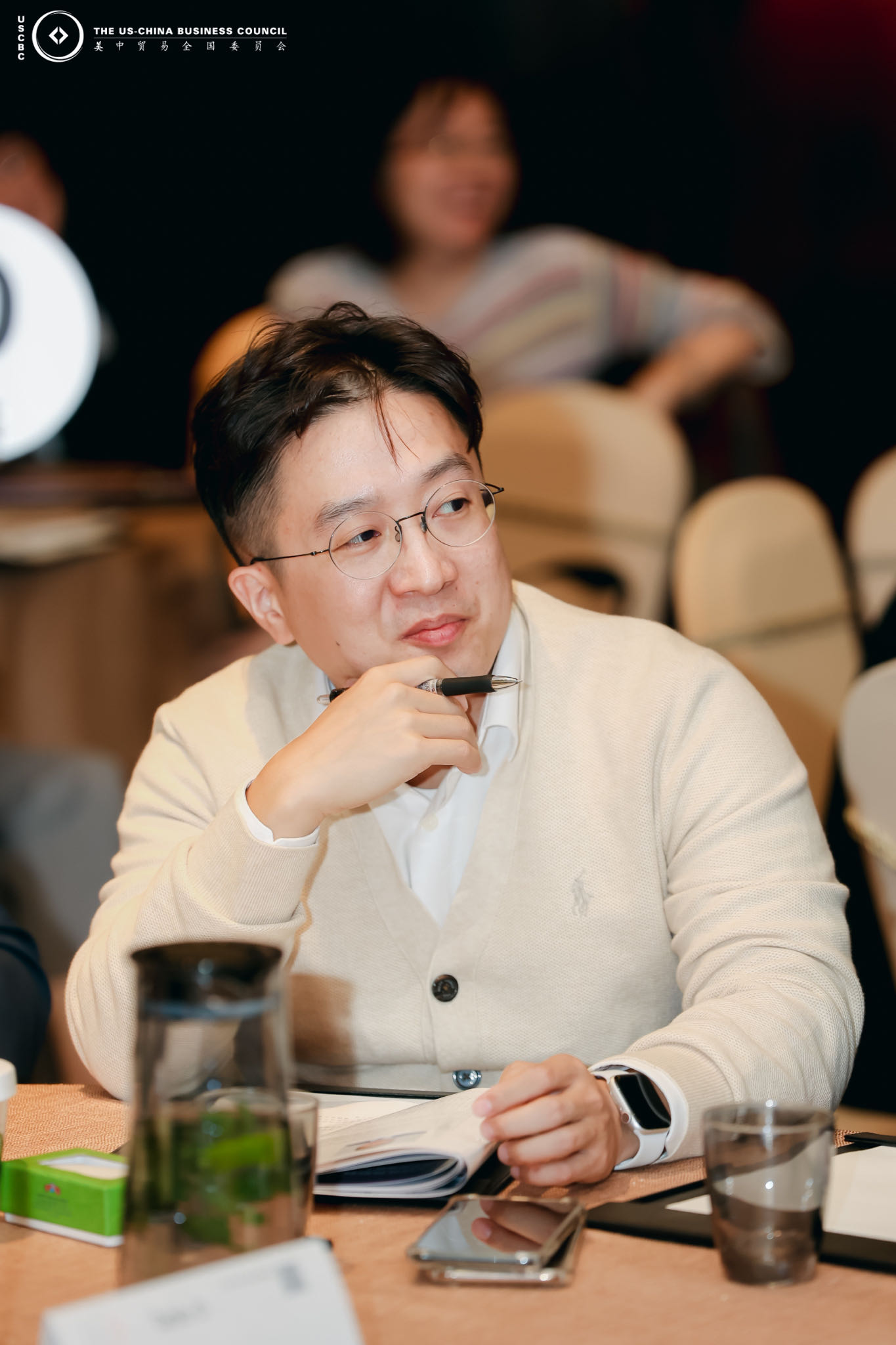
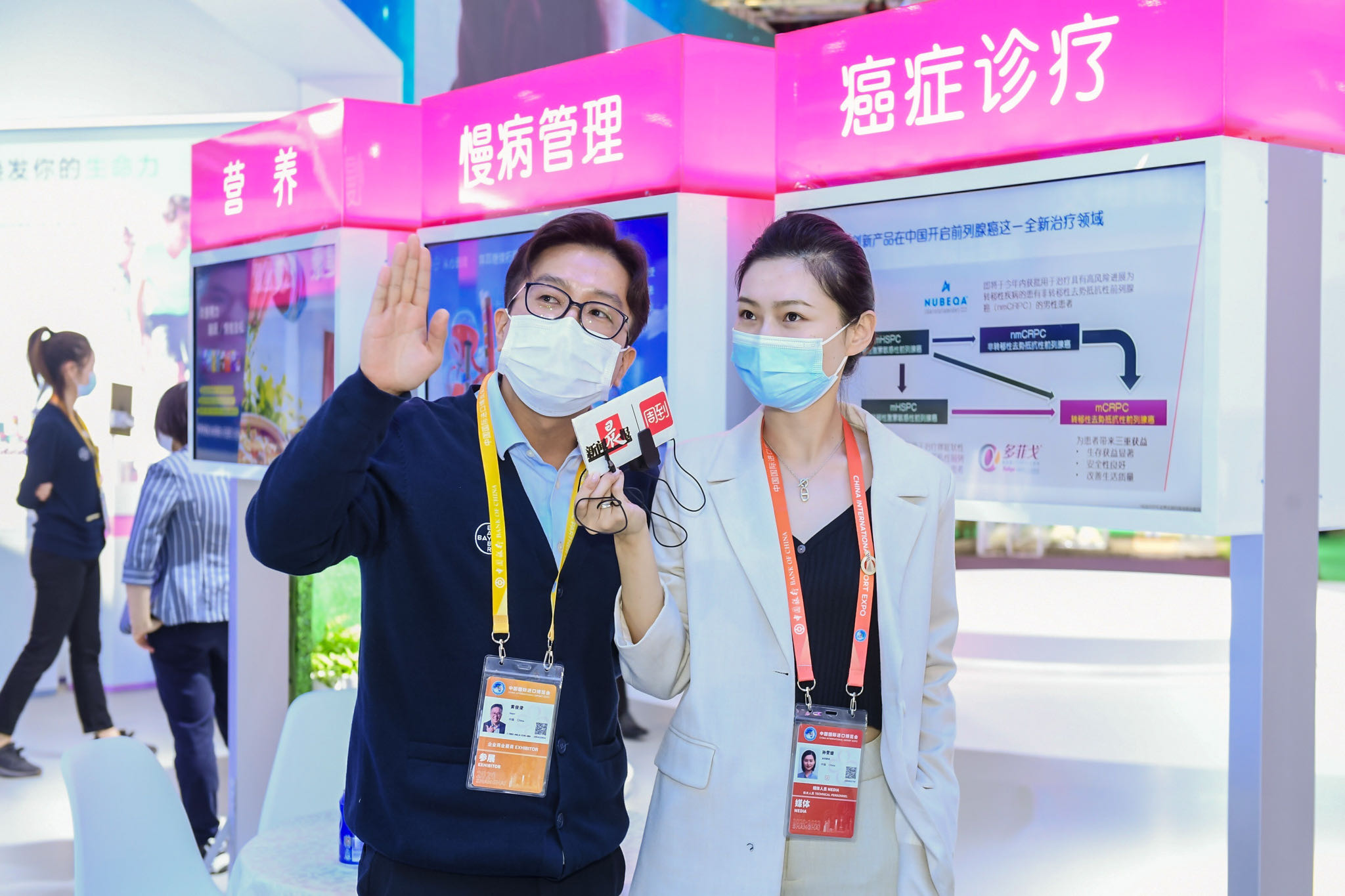
Studying at CEIBS was a process of quiet anticipation, preparing me for a new direction in life. Transitioning to the healthcare industry was not solely guided by CEIBS professors, courses, clubs, and career centre support, but these experiences provided me with a comprehensive understanding of the healthcare sector. For someone like me, without a medical background, this holistic view was particularly valuable.
During that time, CEIBS professors approached the subject from the perspective of "Integrated Healthcare Delivery," thoroughly analysing the operational mechanisms of hospitals, health insurance, and the pharmaceutical industry chain. They not only invited industry leaders from multinational pharmaceutical companies and innovative drug enterprises to interact with us in class but also organised field visits to innovative healthcare projects. From top-tier public hospitals to innovative secondary hospitals and private clinics, each visit greatly benefited me. The quarterly "Health Policy Roundtable" hosted by professors broadened my horizons further, bringing together central policymakers and local policy implementers. Through their insights, I gained a firsthand understanding of the significant differences in policy execution between developed and developing regions.
CEIBS's Career Development Centre provided invaluable job search guidance. Teachers conducted mock interviews personally, pinpointing areas where I needed improvement, enabling me to make timely adjustments before real job interviews.
CEIBS professors were not just mentors in my studies but also guides on my life path, becoming lifelong teachers. Their teachings and guidance laid a solid foundation for my career transition in the years ahead.
After graduation, I have stayed in touch with professors at CEIBS, following their Health Policy Roundtables and also keeping an eye on viewpoints and judgments from other industry leaders. Their insights into China and global macroeconomics, as well as geopolitical affairs, often became focal points of discussion among my peers and laid an important foundation for my subsequent career transition into government affairs. One professor's remark at the time, "Apart from focusing on our own lives and work, we must also look up at the sky to see the macro changes and act accordingly," became a guiding principle in my career. Additionally, the CEIBS library's curated recommendations of classic books by CEIBS professors allowed me to continually see a different world through the window of knowledge, continuously broadening my perspectives.
Business strategy illuminates the future path of the restaurant.
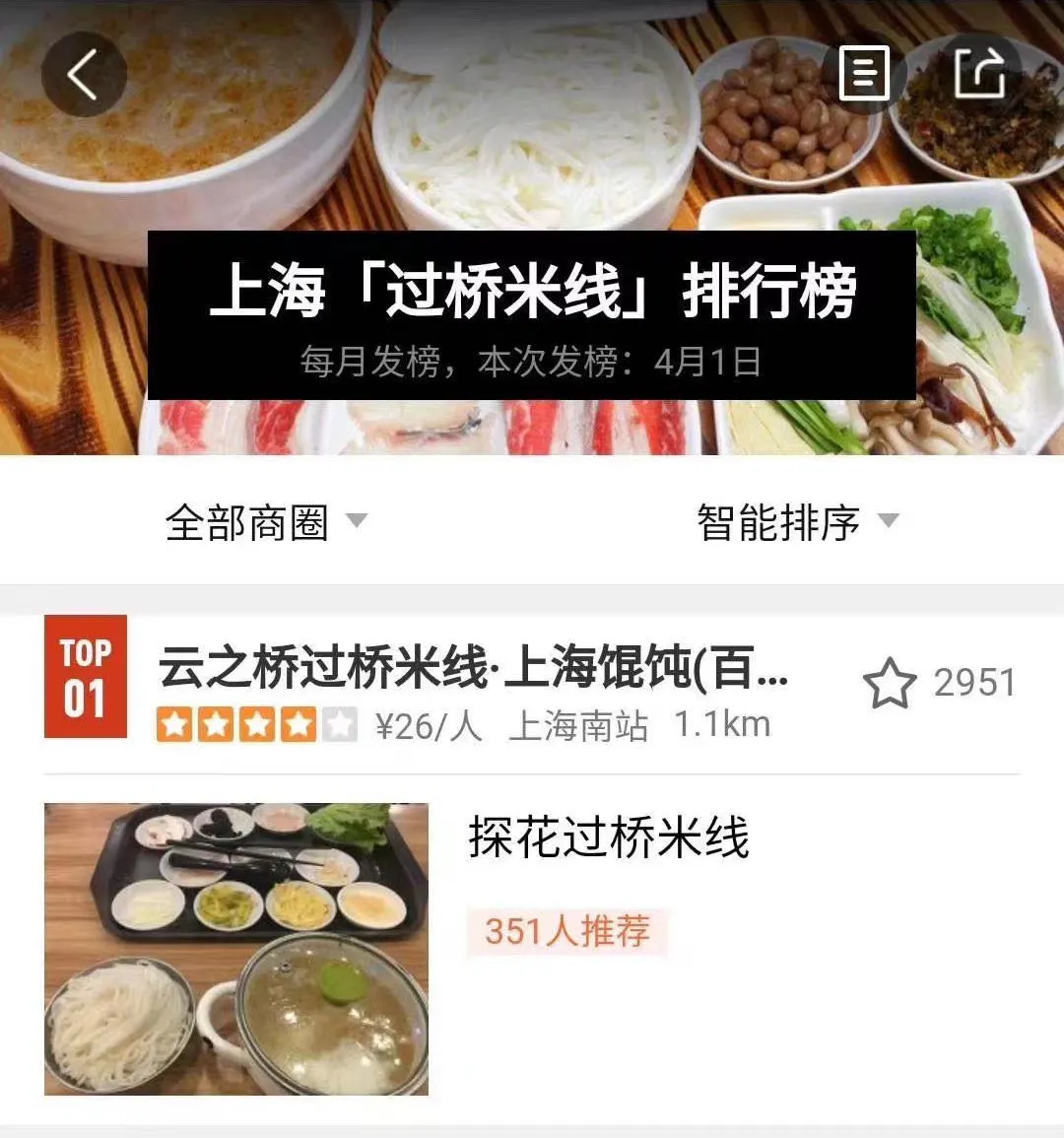
In addition, my learning experience in CEIBS has also prepared me well for running a restaurant in the future. In the class, the professor of strategy deeply analyzed the Internet war between Meituan and Dianping from a strategic perspective, and the takeout war between Elema and Meituan from a strategic perspective, so that I could understand the mode of catering plus Internet from another perspective. It also laid an unexpected foundation for the later epidemic period, which was mainly focused on food delivery. The catering industry associations and clubs in CEIBS have also allowed me to meet famous chain fast food enterprises of different scales, such as McDonald's, Burger King, etc., allowing me to see the business models of snack fast food from different dimensions.
Current Job Introduction

Currently, I am the head of government affairs for Merck Group's East China region. Let me briefly introduce what foreign enterprise government affairs do. The core of foreign enterprise government affairs is to build and maintain a harmonious relationship between enterprises and the government, ensuring that enterprises can smoothly carry out commercial activities while strictly complying with laws and regulations. In short, it plays a dual role as a firewall and catalyst. Specifically, government affairs of foreign enterprises involve the following aspects: policy analysis, compliance management, licensing and approval, crisis management, social responsibility, strategic planning, etc.
Additionally, I would like to introduce the characteristics of China's pharmaceutical industry to help students who are interested in this industry. Firstly, public hospitals and social security dominate the healthcare system. Compared with the "impossible medical triangle" (convenience, low price, good quality), the Chinese medical system mainly focuses on convenience and low price, which to some extent leads to relatively weak service quality. In contrast, the healthcare system in the United States is characterized by high prices and high service quality, while Europe focuses on providing affordable, almost free, and well served healthcare services. However, patients find it difficult to make appointments and often need to wait for a long time.
China has a vast territory, and the level of economic development varies greatly from developed regions to developing regions. This requires pharmaceutical companies to adopt more flexible and diverse strategies to cope with different market demands and competitive environments when entering the Chinese market. Understanding the Chinese market and cultural background requires having different perspectives and perspectives.
Greetings on CEIBS' 30th Anniversary
"CEIBS are about to celebrate their glorious thirtieth birthday. May it continue to forge ahead and become a strong bridge connecting China and the world's wisdom, and promoting mutual understanding."









